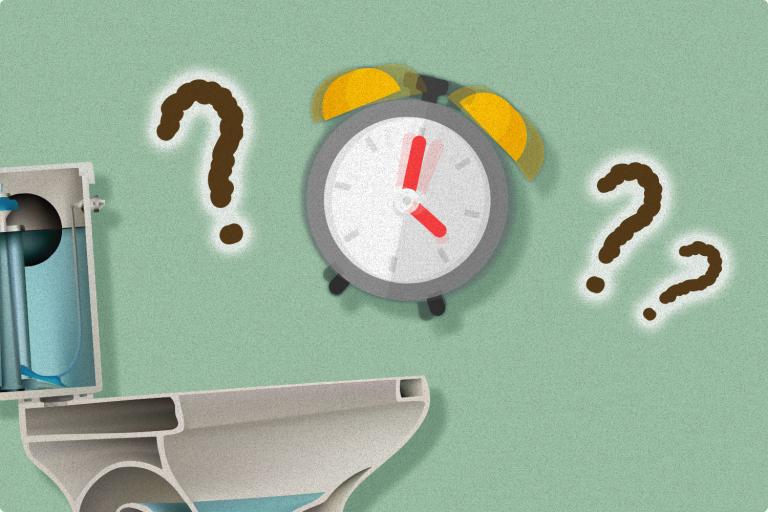Each day, our lives are getting busier and busier.
If it hasn’t happened already, you’ll likely run into a time where you feel too busy to sit down and take a poop.
Unfortunately, as our calendars continue to fill up with meetings and personal obligations, we also run the risk of clogging up our digestive systems.
That’s why one of your number one priorities should be making time for “number two.”
But how often should you poop? We’ll explain below.
How Often Should You Poop?
According to a 2019 U.S. News report, a healthy person will usually poop at least once every three days, depending on their digestive system and diet. However, some healthy people could poop up to three times per day.
Although the number of movements per week or day can vary from person to person, there is such a thing as not pooping enough or pooping too much.
Here are a few quick guidelines to keep in mind.
You Should Poop at Least 2 Times Per Week
Not pooping enough could result in stools getting stuck in your digestive system where they can harden, cause bloating, or lead to constipation and painful bowel movements. Additionally, doctors report that regularly holding in poop could cause more serious issues like a stretched colon, fecal impaction, or buildup that will require medication or laxatives to clear.
If you can’t poop for more than three days, this is usually a sign of constipation and a need for more fiber or digestive nutrients in your diet.
...But No More Than Three Times Per Day
While some people do have up to three poops per day, you shouldn’t force your body to have movements if you don’t share the same schedule. Pushing too much or forcing bowel movements can overexert your digestive system and cause tearing, swelling. hemorrhoids, or other medical issues.
Additionally, if you can’t help pooping more than three times per day, and your poop seems watery or misshapen, it’s likely a sign of diarrhea or illness.
Tips for Maintaining a Healthy Schedule
-
Listen to Your Body
If your body is telling you to go poop, try to get to the restroom as soon as you can. If you do miss your window, be sure to act promptly when you feel your next bowel movement.
This will not only allow you to clean out your system on schedule, but it will also help prevent constipation or further digestive troubles.
-
Don’t Force It
Sometimes, your body might not be ready to clear your system. Or, you might feel a bit constipated. While you can sit for a few minutes to see if a bowel movement comes, don’t strain yourself trying to push.
Instead, consider a laxative, more fiber, healthy supplements, or a call to the doctor if you worry you aren’t using the bathroom enough.
-
Maintain a Healthy Diet
Not only will a healthy diet help you create a perfect, snake-shaped poop, but it will also help your digestive system run on a healthy schedule.
Be sure to snack on foods that are high in fiber, fermented, or low in saturated fats.
-
Exercise Regularly
Research shows that light physical activity and staying in shape can make bowel movements easier and healthier. This is because healthier digestive muscles require less blood and force to move waste down the bowels.
However, doctors do warn that strenuous exercise, or working out too soon after eating, should be avoided as this can slow the process of digestion.
Similarly, working out after you’ve cleaned out your system can have you feeling weak or tired due to dehydration or less food in your stomach.

